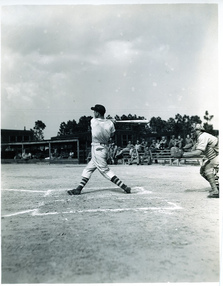 Hit a home run!
Hit a home run! 1. Do it every day.
As with any muscle, your brain needs to get used to things. It's a giant muscle with lots of other things it has to do, so if you want to write, you have to train it. I started with a daily journal, writing a minimum of 750 words every day. In the beginning, that was a bit challenging (both to do it and get to the word count), but I eventually got there. I used a great website called 750words.com to help me, too. After a while, I was in the habit, so I decided to extend the number of words I wrote every day. First by a little, then a little more. Now I write upwards of 1500 to 2000 words every day. Then I decided to work on something serious every day (the journal was just thoughts, no big deal). I started with twenty-five minute sessions, with five minute breaks in between using a great app called Pomodoro or Clockwork Tomato that I downloaded onto my phone. I currently am working on developing the habit of writing seven days a week, for a minimum of two hours (25 minutes on, 5 minutes off). I'm working on extending the time to three hours, but my brain needs to toughen up. So do it every day. Write.
 A kitten goal is too cute to resist.
A kitten goal is too cute to resist. Another thing I did was set goals for myself. Like right now, I'm working on a screenplay. I'm trying to write ten pages per day (which is admittedly a tough goal), which would allow me to finish the first draft before I go on vacation over Labor Day weekend. With the goal, I know where I am, where I'm going, and how I'm getting there. It helps. I also set longer term goals, such as writing a novel by the end of the year, or having two scripts by then, and things like that. They do have to be adjusted from time to time, but it really helps.
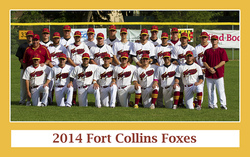 All-stars.
All-stars. Just like athletes, we need to see improvement. So I've created a little chart that tracks what I've done. It's just a simple spreadsheet, but I put the date, the amount of time I spent writing, what I was working on, how many words I wrote, where I wrote, and any other notes for that day. Then I can see when I have dips or peaks and try to figure out what was or wasn't working on that day. I can also see the progress I make overall towards finishing whatever I'm working on. And, I can see overall improvement. Maybe in the beginning I was only writing 750 words, but now I'm writing 2000. Yes, that's an improvement, and I'll take that as a victory.
4. Test your concentration
One of the things about being an athlete that makes one great is the ability to deliver their best performance no matter the circumstances. They don't have breaks in concentration or 'bad days'. They get out there and always bring their 'A' game. As writers, I know that sometimes we are very fragile. We're susceptible to moods, weather, distractions, and all manner of monsters that aim to keep us from writing. So we have to battle that. Once you have a writing practice in place where it feels stable and secure, switch it up. If you usually write in your office, write at the kitchen table. Or the coffee shop. Or the sofa. Or wherever. Just change your surroundings. This helps prevent getting into a rut and developing the belief that you can only write under specific and particular circumstances. This is bullshit, my friends. You can write anywhere. Yes, anywhere. I have found that I am able to concentrate very well when I'm at the airport waiting on a flight. Sometimes I can even do it on the plane (that one needs work). Who knew? But since I can't go to the airport every day, I like to switch it up sometimes, and see where I write well, and where I don't. And work on getting better at the places where I don't. That way, literally NOTHING can stop me from writing. Because I can write anywhere.
5. Join a team
Writing is often a solitary and lonely activity. Sometimes encouraging ourselves just isn't enough. So go get some teammates! I joined a writing group a little over two years ago, and we meet weekly to read and discuss our work. It's wonderful. With a writing group, you get feedback on what your doing, and encouragement for where you're going. I've had some difficult times in this group, but in the end, we're all there to help each other and make each other the best writers we can be, and it's due to this group that I've grown into the writer I am. They've been there to applaud me and steer me out of ruts. And I even managed to make some great friends out of it to boot. Seriously, get on a team. They'll hold you accountable when you slack, and pat you on the back when you finish. Just like in sports.
 Show us your melons!
Show us your melons! Very few of us writers ever really plan to never show anyone our work. Nor should you. You did it, now share it! Whatever you're working on, whether it's poetry, a novel, a screenplay, blog, or short story, should be shared with the public. Maybe that means writing contests. Go for it! Maybe it means finding an editor or agent and getting published. Maybe it just means sharing it online with a select group of like-minded fans. Whatever it is, get your work out into the world. It would be silly if Usain Bolt just stayed in Jamaica and ran down the street for fun, right? We want to see him in the Olympics, showing us how his training and amazing abilities have made him into the fastest man on the planet. We want to see Michael Phelps reach for the wall, and we want to see that gymnast get that perfect score. Likewise, we want to see you and your work live in the world and get the attention and love it deserves. We want to see you on that podium!

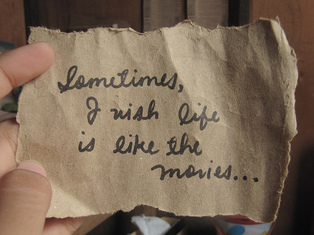
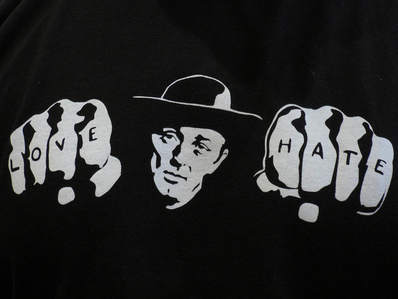
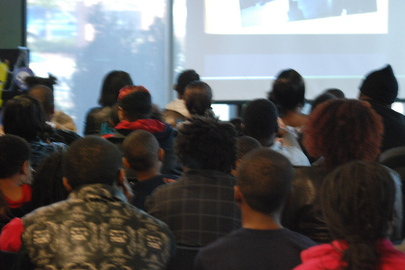

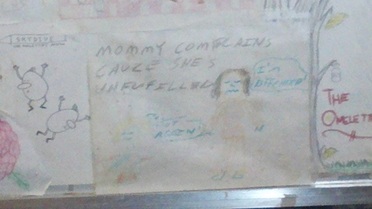
 RSS Feed
RSS Feed
